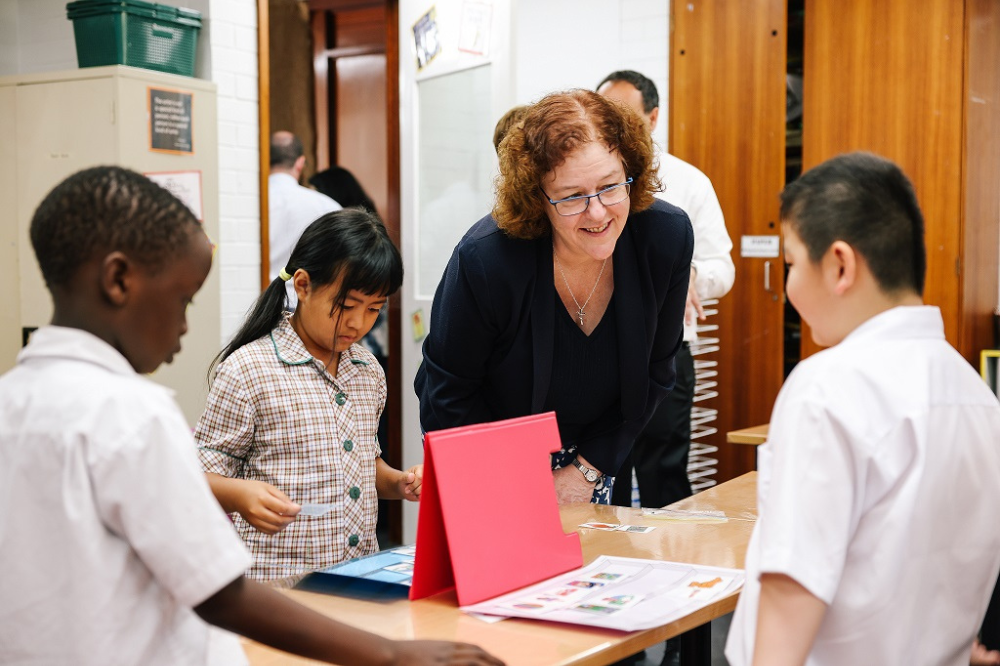
In the vast landscape of Australian education, Jacinta Collins stands atop with a view as panoramic as it is profound.
Since entering the Senate in 1995, Collins has held several leadership roles and has served on the frontbench in the portfolios of school education, early childhood, workplace relations, mental health and ageing.
Yet, her marked dedication to education found its most profound alignment in February 2019, when Collins took the helm as the executive director of the National Catholic Education Commission - a monumental task, given the responsibility of representing 1,759 Catholic schools and the educational aspirations of nearly 794,000 students nationwide.
And this commitment did not go unnoticed. In May, Collins was awarded an Honorary Degree, Doctor of Letters, from the University of Notre Dame Australia (UNDA) in recognition of her contribution to public life serving the community and for her work advocating for Catholic education and, more broadly, Catholic social teaching.
Reflecting on the achievements of the Catholic education in 2023, Collins noted the strong upward trend in enrolments across the sector’s 1,759 Catholic schools, which now educate nearly 794,000 students and employ nearly 104,000 staff.
“We are focused on school improvement and strengthening learning outcomes and have been closely involved in the consultation processes with governments from across Australia on national reform,” Collins told The Educator.
“Our pathways are broadened and strengthened by our willingness and ability to collaborate and co-create with our state and territory peak bodies, diocesan systems and Religious Institute and Ministerial Public Juridic Person authorities to engage deeply on what the data is telling us and to identify examples of practice that are having a positive effect and sharing these across systems and school communities.”
Collins said a prominent focus of Australia’s Catholic schools in 2023 has been on equipping teachers with evidence-based professional learning tools to ensure they deliver the best outcomes for the students they teach.
“It is indisputable that teacher quality is the most important factor in determining student outcomes,” Collins said. “There has been a significant focus on responding to the teacher workforce challenges that we see across all sectors of education.”
“Across Catholic education we are also responding to how our Catholic schools can respond to student views on wellbeing, faith formation and learning, recognising the importance of our teachers to know each and every student, and to guide them in their learning and formation.”
Collins noted collaboration has also been a key theme within the sector this year.
“The NCEC is collaborating nationally across the sector to address mathematic outcomes and exploring early years literacy to generate models of evaluated best practice for consideration across our sector in the years ahead,” she said.
“For example, we are currently working to develop resources for Year 7 & 8 mathematics and that will help free up teachers time so they can focus on the students to give them the best learning experience and support that they can.”
Collins said this is part of the NCEC’s national strategic priority to support the continual improvement of education outcomes for all students.
“This is being done by undertaking research, data analysis and identifying evidence-based practice across our schools and systems to be shared and maximised.”
“We will be strengthening our collaboration in the year ahead; we must work together across sectors and across schools to respond to the challenges of declining student outcomes.”
Collins said this is a challenge shared across the whole education landscape, and particularly for students experiencing educational disadvantage and those from rural and remote areas.
“We are also looking at how Catholic schools can address wellbeing, faith formation and learning,” she said, noting that the sector recently came together at the Australian Catholic Education Symposium to hear from, Professor Anne Graham AO, an expert in this area.
In October, leaders in Catholic education also attended the National School Improvement Colloquium in Perth, which Collins said provided another valuable opportunity for Catholic education leaders and educators to come together to learn from each other and support practice.
“We aim to continue similar collaborations throughout 2024.”


